Subscribe to trusted local news
If you are accessing this story via Facebook but you are a subscriber then you will be unable to access the story. Facebook wants you to stay and read in the app and your login details are not shared with Facebook. If you experience problems with accessing the news but have subscribed, please contact subscriptions@thestrayferret.co.uk. In a time of both misinformation and too much information, quality journalism is more crucial than ever. By subscribing, you can help us get the story right.
- Subscription costs less than £1 a week with an annual plan.
Already a subscriber? Log in here.
25
May 2025
The Californian engineer building bridges between communities
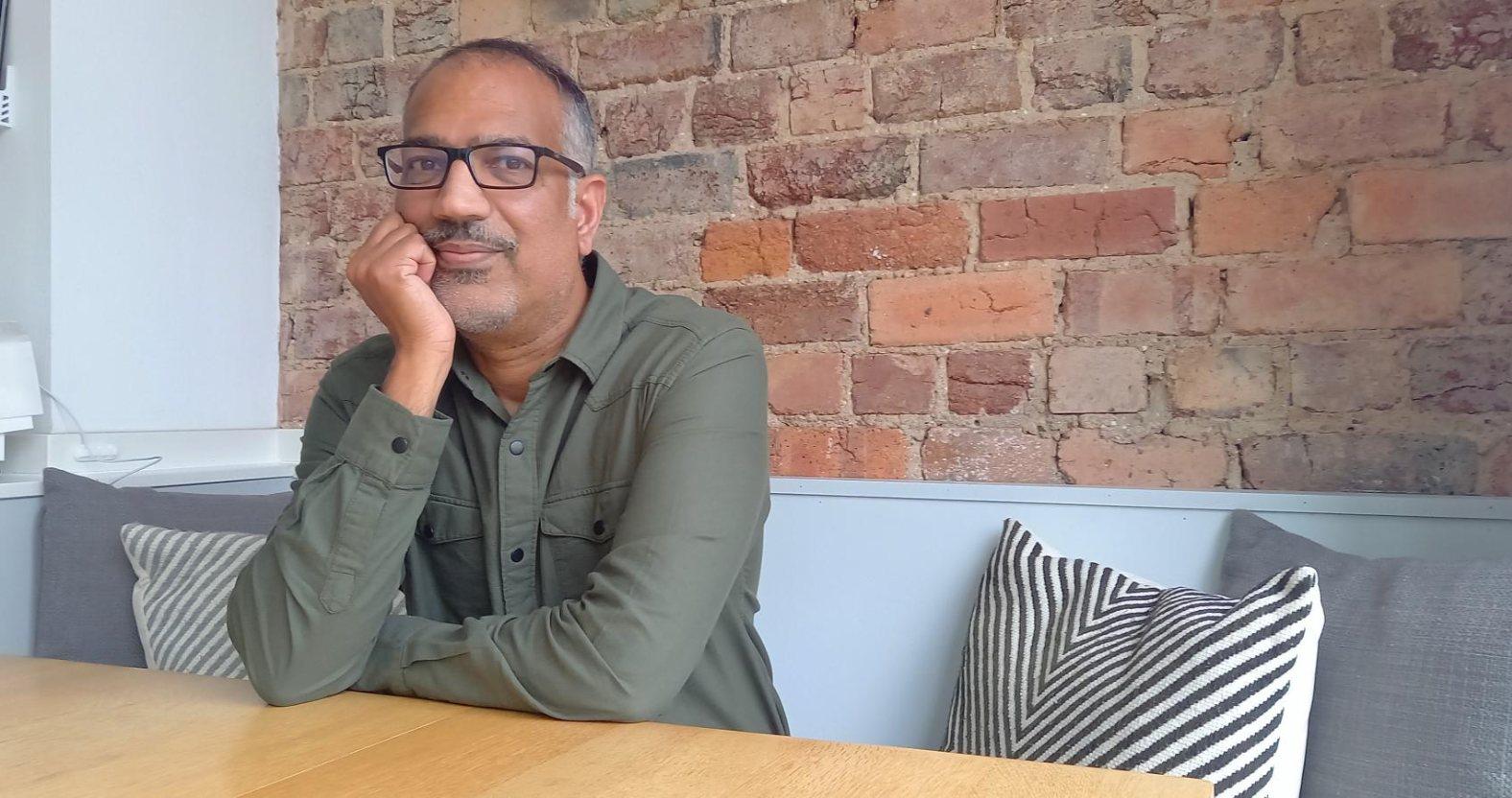
Anyone who has been following the progress of Harrogate’s mosque closely will be familiar with Zahed Amanullah. He’s become the unofficial spokesman for the town’s Muslim community as it builds a ‘spiritual home’ on Belford Road, where people can gather and worship.
But anyone who knows a little about his work will appreciate that his efforts on behalf of the Harrogate Islamic Association are just one very small part of a workload that is mostly international and very high-level.
And those who have heard him speak know that he is no ‘homegrown’ Muslim. His demeanour is far too relaxed to be British, and his accent is far too Californian.
So just who is Zahed Amanullah, and why is an American who hobnobs with prime ministers and princes making Harrogate’s mosque his business?

Zahed on CNN.
British connections
Well, for starters, he lives in the town, and has done for the last 10 years. In fact, his connections with Britain go back a long way – his grandmother was born in London in 1909 and his great-grandparents were in this country, albeit temporarily, in the late 1800s.
Leaving behind the sunshine of Orange County, he came to this country for love – his wife, Abbey, is English (and American-educated) and her family still live in Bradford, which is why the couple settled in nearby Harrogate.
Zahed’s career here was going well – he was lead structural engineer for the Bradford Broadway mall project – when he quit to concentrate on his real passion: tackling extremism and building bridges between faith communities.
In an exclusive interview with the Stray Ferret, he told us:
I had always been interested in what this dynamic was between Muslims and the West, in part because my identity was very solidly Western.
I have spent four weeks of my life in India, where my parents came from – that's it – so my joke to a lot of my white, Western friends is ‘You're more Indian than I am if you've gone backpacking in India for longer than that’!
Pivotal moment
Alongside his engineering work, Zahed had run a successful Muslim news magazine for 10 years with his brother. They also had an award-winning podcast, and it was an episode they produced after the 7/7 London Bombings of 2005 that proved pivotal.
He said:
My brother was in the United States, I was here in the UK, and we were just trying to make sense of what was happening from a journalistic perspective, but also from a Muslim perspective. By doing that work very publicly, that's when I caught the eye of the thinktank where I work.
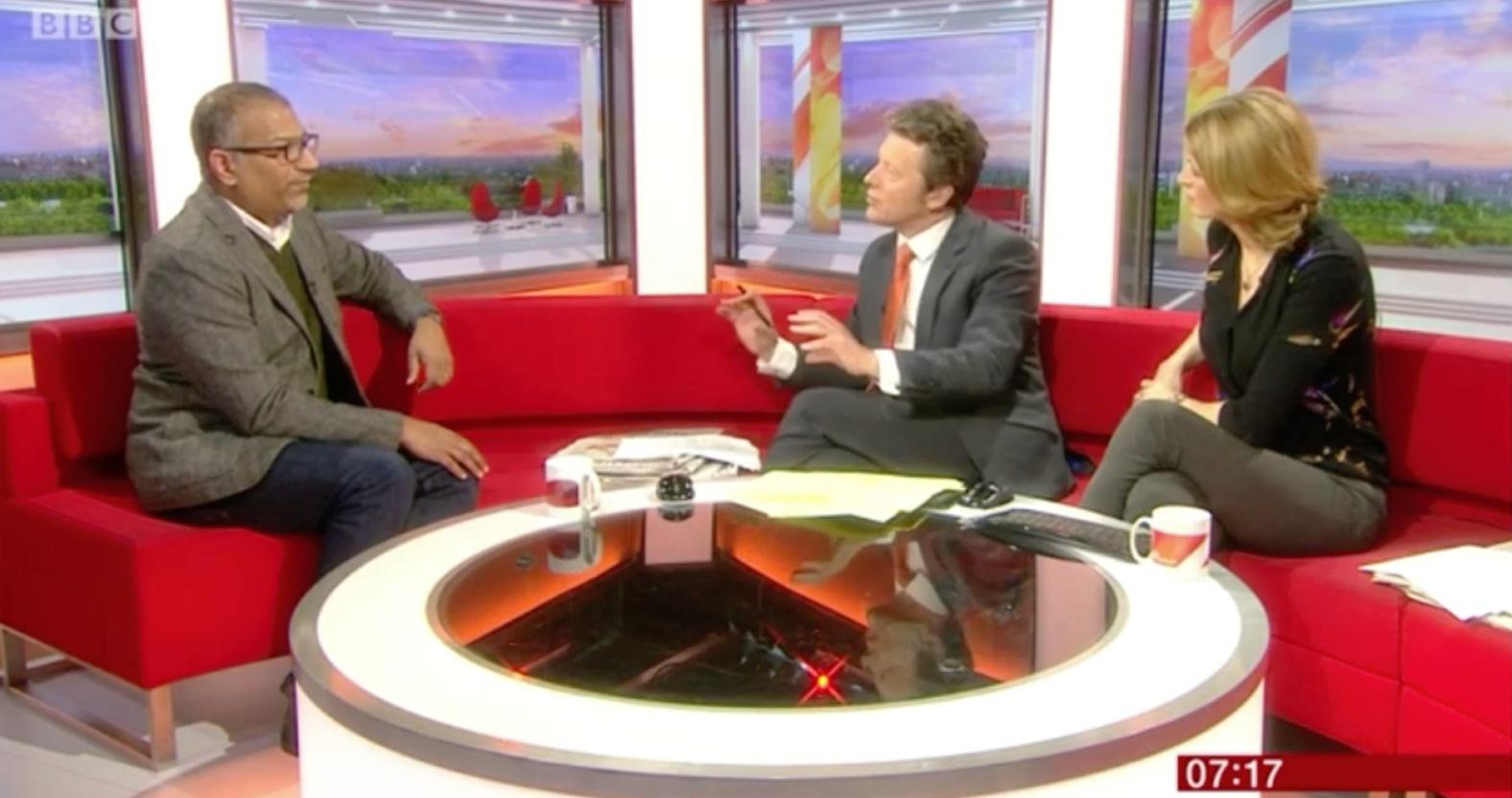
Zahed on the BBC Breakfast sofa.
Suddenly, Zahed was in demand, and after his first interview with the BBC, his website started attracting 12 million viewers a year.
And as he says, it also brought him to the attention of his current employer, the Institute for Strategic Dialogue, an international thinktank with offices in offices in London, Berlin, Amman in Jordan and Washington DC that’s “dedicated to safeguarding democracy and human rights by reversing the rising global tide of polarisation, extremism and authoritarianism”.
He said:
We were still reeling after 7/7 at that point. ISIS was starting to stir up in the Middle East, and they were starting to shock the world with what they'd done. I said, ‘You know what? I if I can be a part of the solution to this, now's the time to decide’.
So I switched careers, and I went full-time to work for this thinktank, because there was work to do.
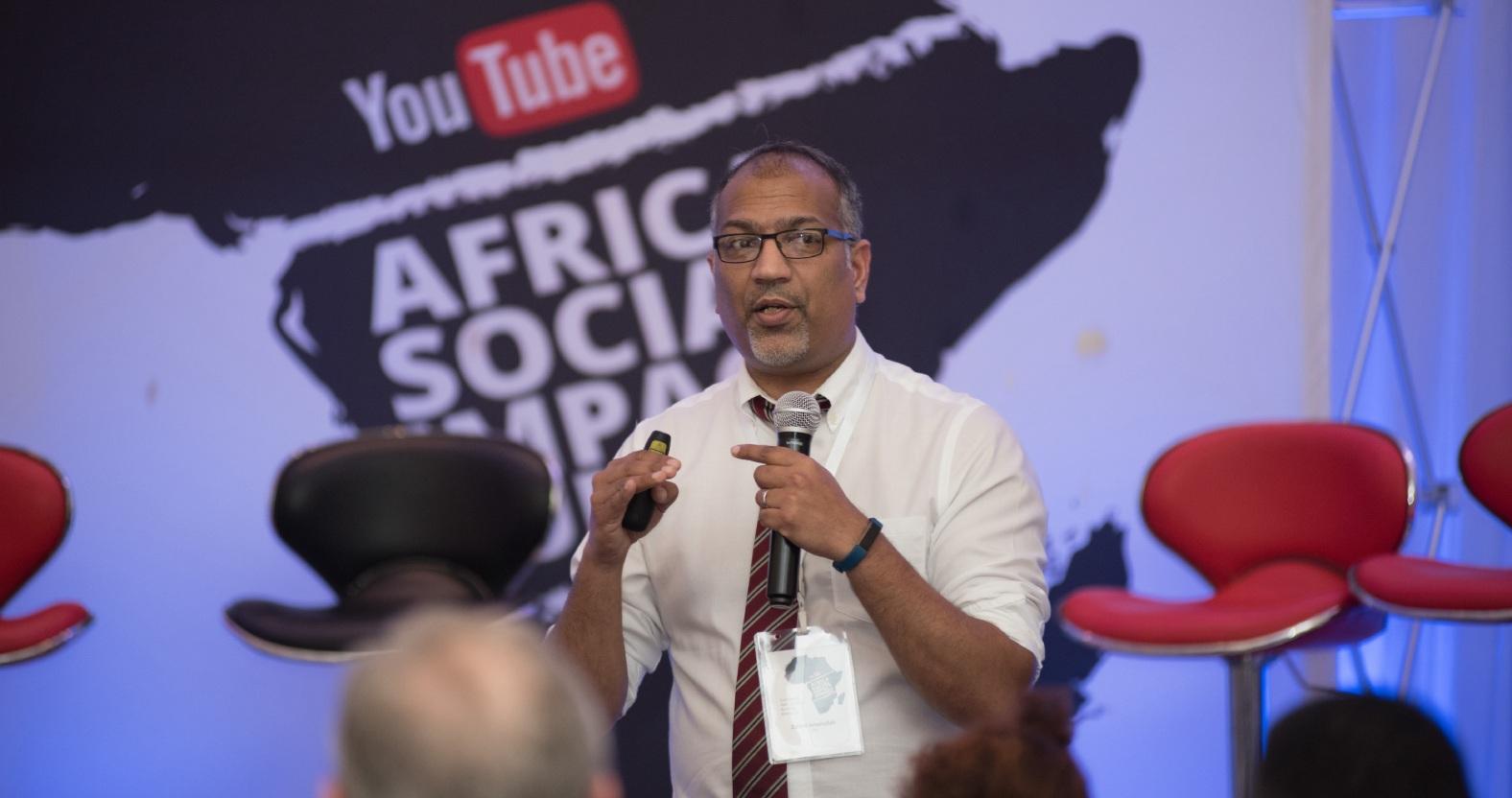
Zahed speaking at the Africa Social Impact Summit.
Common thread between extremists
His work as resident senior fellow has seen him advise the EU and the British, Canadian and US governments on how to combat extremism – and not just the islamist kind.
Countries across the West have seen a rise in extremist tendencies of all stripes, but Zahed says they all share the same features.
He said:
The common thread is a fear of losing your identity, your way of life, your history and traditions. Every extremist movement that I've researched is rooted in that. You hear the same language being used when Al Qaeda and ISIS talk about restoring traditions lost at the hands of the West, as you do when neo-Nazis talk about the golden age of white America, for example.
Similarly, a lot of extremists in Israel talk about restoring a lost history of the Jewish people. And of course, in essence, the fact that they speak on the behalf of all Jewish people – by definition conflating Jews with Israel – is an antisemitic trope.
But extremists do that. They want to speak for everyone in their group and proclaim that they are the true response to this changing world.
But they also either advocate the use of violence, or they're very tolerant of the use of violence to achieve these ends. That's the dangerous part, because any kind of violence is escalatory.

Zahed on the BBC.
Credible messengers
One tried and tested method of preventing people from getting caught up in extremist ideologies is to use what Zahed calls “credible messengers”. Often, these are reformed extremists – ex-jihadists or neo-Nazis – who can communicate in a language that will be understood by their target audience.
He said:
We found in our research that the people being lured to join ISIS were religiously illiterate. They weren't conservative Muslims. They were just young, idealistic people of Muslim backgrounds who were illiterate about what Islam really said about violence, and bought that narrative.
So part of our strategy was to debunk those narratives by actually having someone who's religiously literate, who understood the youth culture, who could convey that in a way that would appeal to those young people.
We did it in the US, here in Britain, we did it in Pakistan and elsewhere, and we got some very good results out of that. We wrote a report in 2016 and I was invited to the White House to discuss it, because they were really impressed with that strategy.
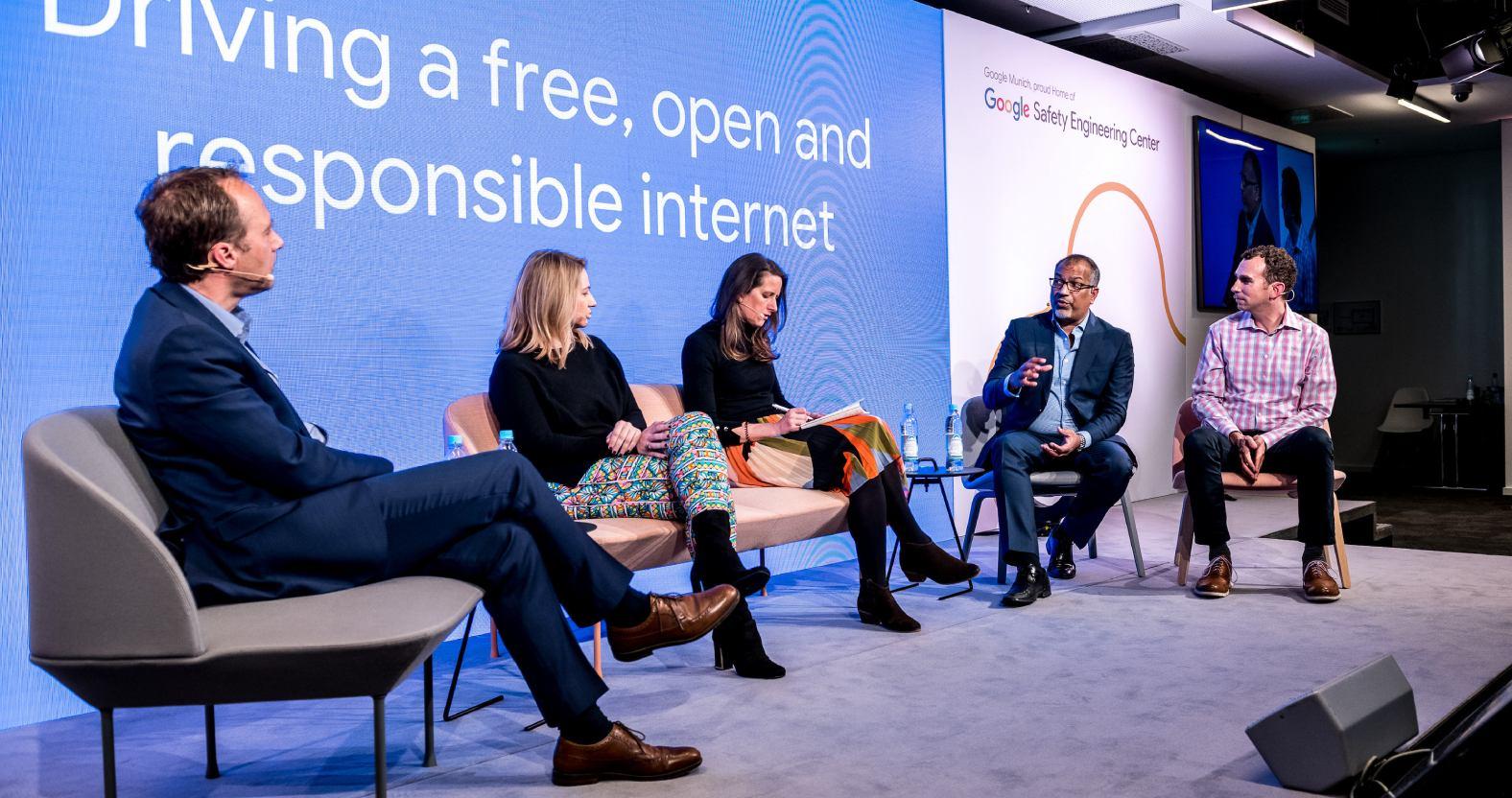
Zahed on stage at a Google event.
In the firing line
All this work on the fringes of ideologies driven by ‘us and them’ narratives, often supercharged by resentment and hate, can take their toll, and Zahed is well aware of the vulnerability that can come from exposure.
He said:
I've put myself in a position where I was 12 hours away from standing on the spot where an ISIS suicide bomber blew himself up with Kenya outside the US Embassy as I was working on a major project there to dissuade people from being seduced by them.
And then I've been named by a neo-Nazi group here in Yorkshire who is upset about what we're doing here in Harrogate.
So, I've been exposed to threats on both sides. There's very, very few people who want to put themselves in that position, but unfortunately, that's what comes from trying to tackle extremism.
Where Harrogate fits in
The work in Harrogate he alludes to is his support of the mosque, which has attracted some negative reactions – mainly from people outside the area – but has largely been welcomed by local non-Muslims in Harrogate.
This is in part attributable to what Zahed call’s Harrogate’s “largely educated, liberal” population, but also due to a proactive approach to public relations that has sought to allay fears before they’re even voiced: No, there will be no Call to Prayer; no, minarets will not be part of the mosque’s design; no, parking should not be a problem, since there's a multi-storey carpark just around the corner.
It may be small fry compared with advising Democrat candidate Kamala Harris on her campaign strategy in 2024 – which Zahed has done – but he sees it as an important example of community bridge-building.
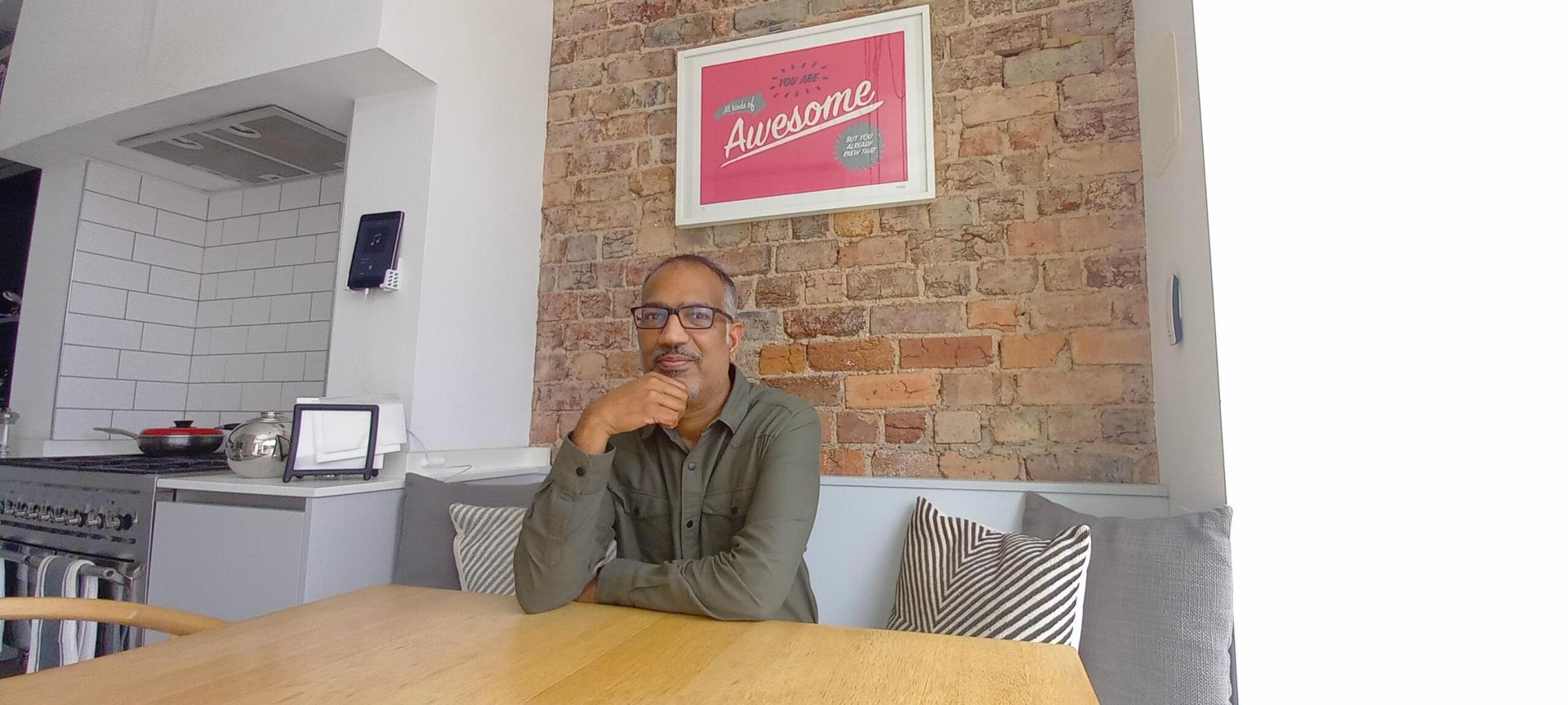
Zahed Amanullah.
He said:
I've studied this and worked on this in sub-Saharan Africa, the Middle East, the US and here. So when this issue came up in Harrogate, as a member of the community I thought, ‘Well, how can I help?’.
One of the bulwarks against [intolerance] is local communities built on partnerships – they breed understanding, tolerance, respect and so forth. That requires engagement. It requires courage. It requires communication – all of that.
So my advice to communities like Harrogate has always been to make sure you keep those lines of communication open. Make sure you tell your story before someone else tells it. Make sure that you pre-bunk what is expected to be used against you.
This approach works. It’s worked in Harrogate in a way that has been really telling – for every person who speaks negatively we’ve seen people here publicly defending us. That’s why this principle of communication and bridge-building is so important.
0